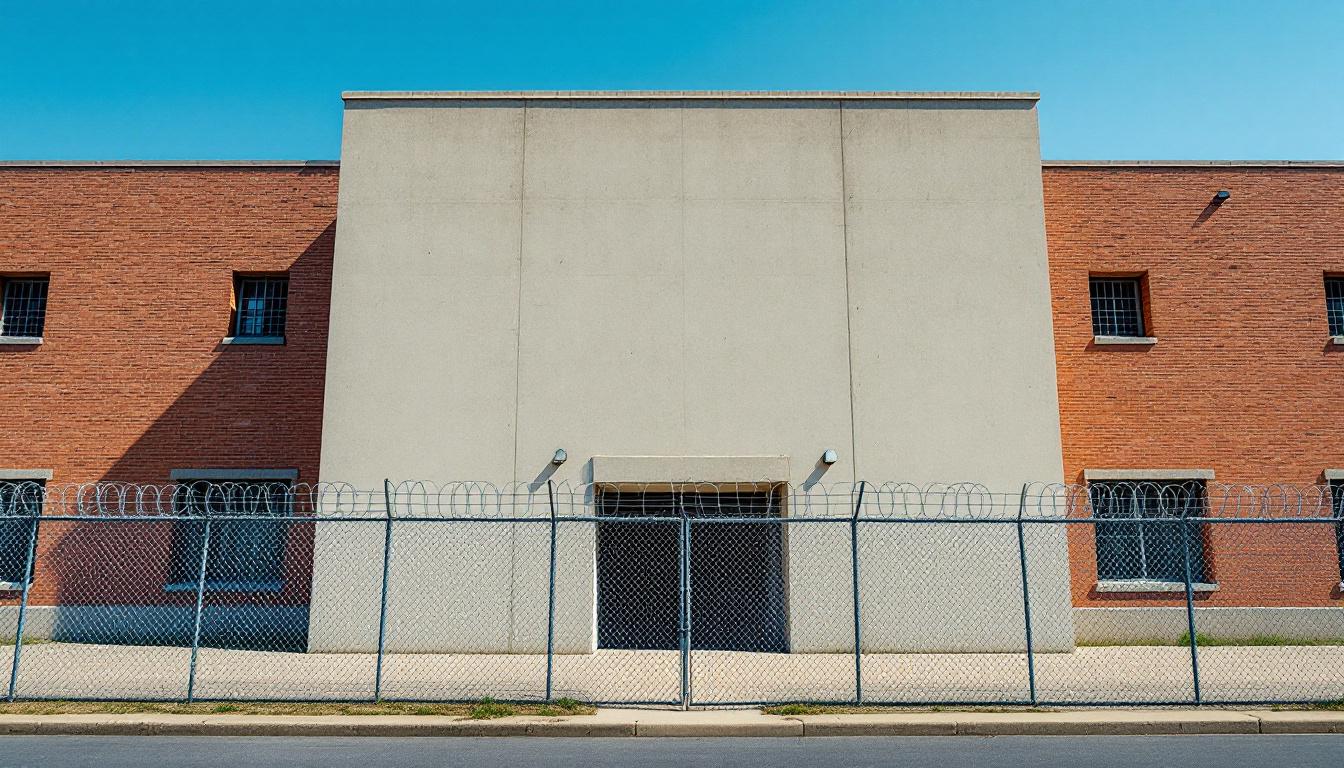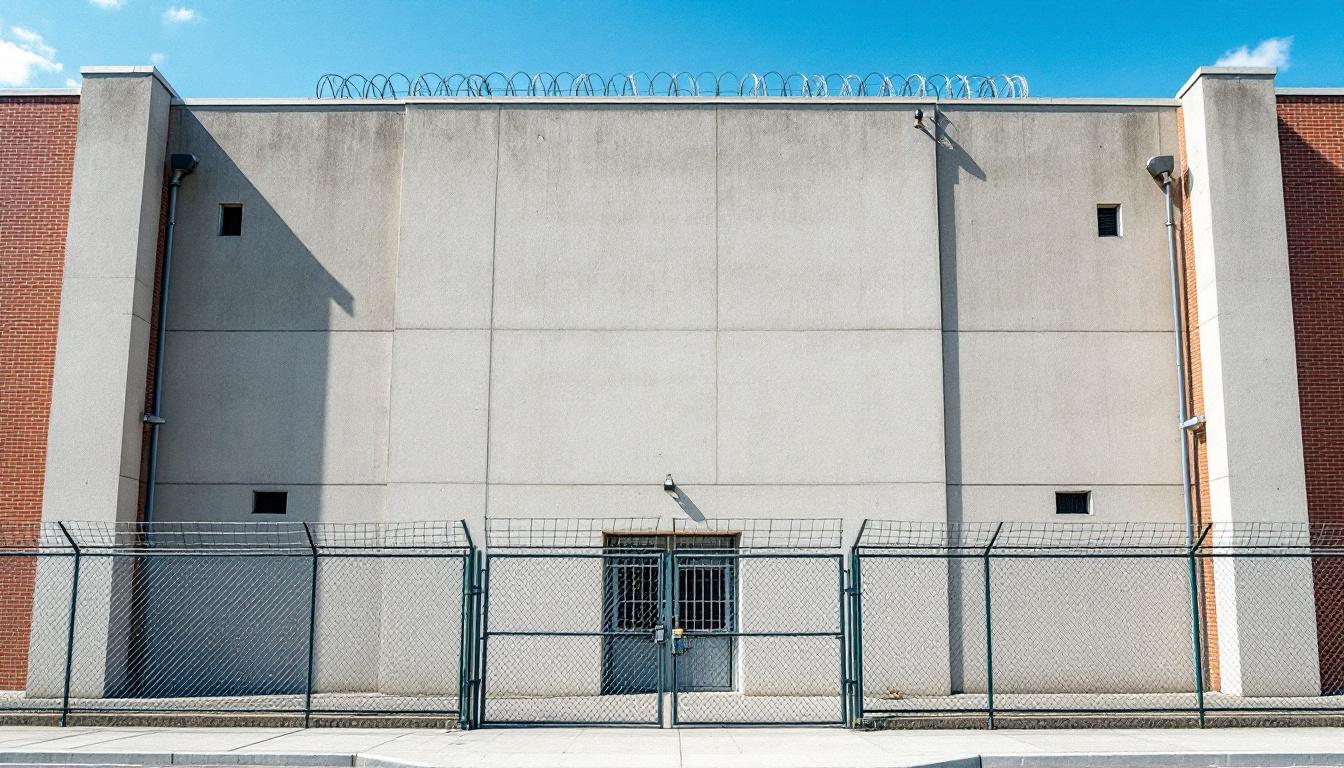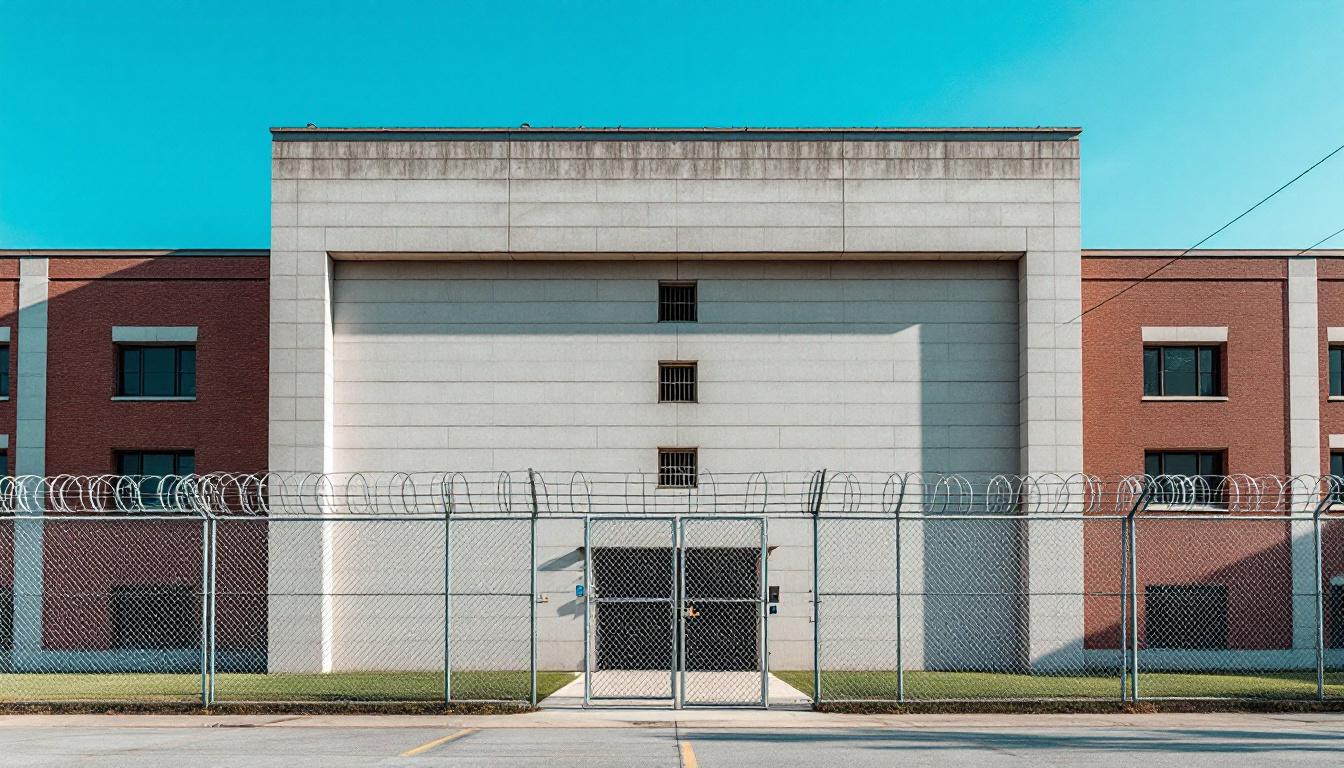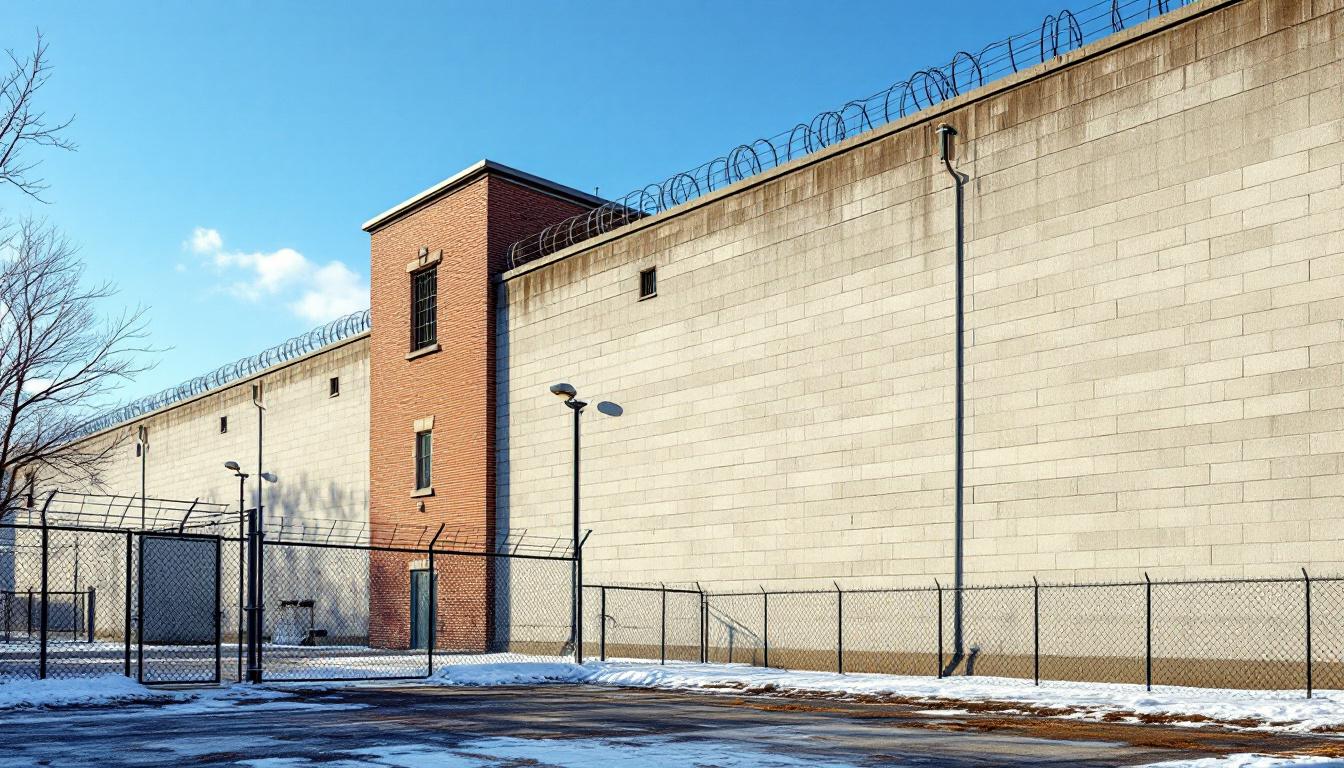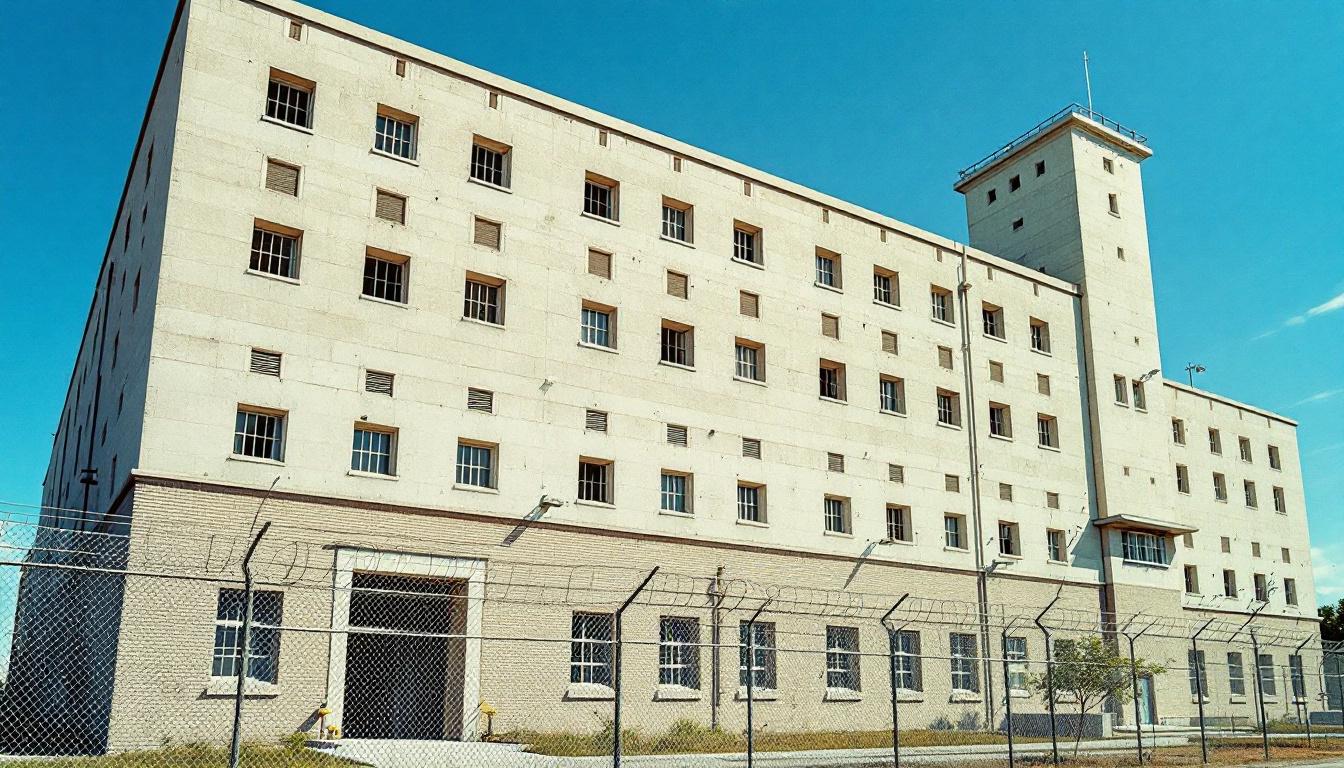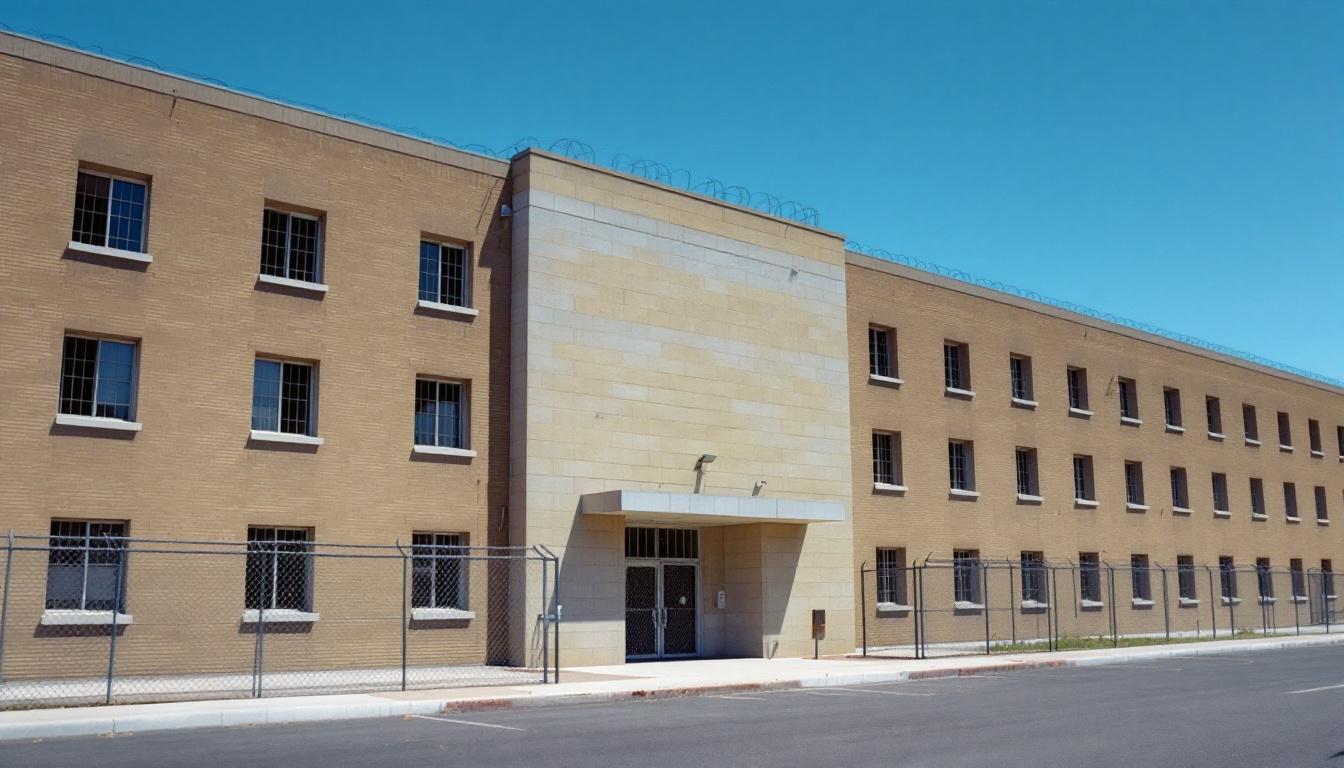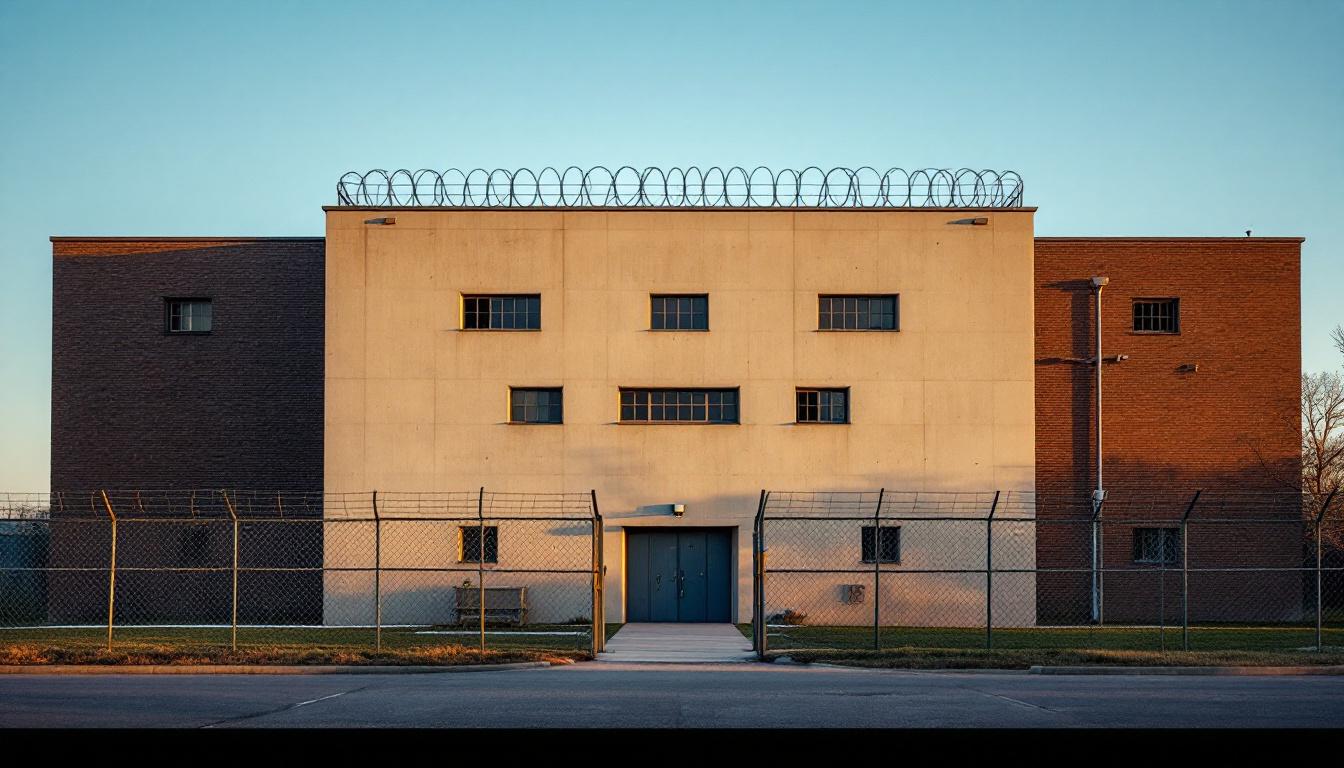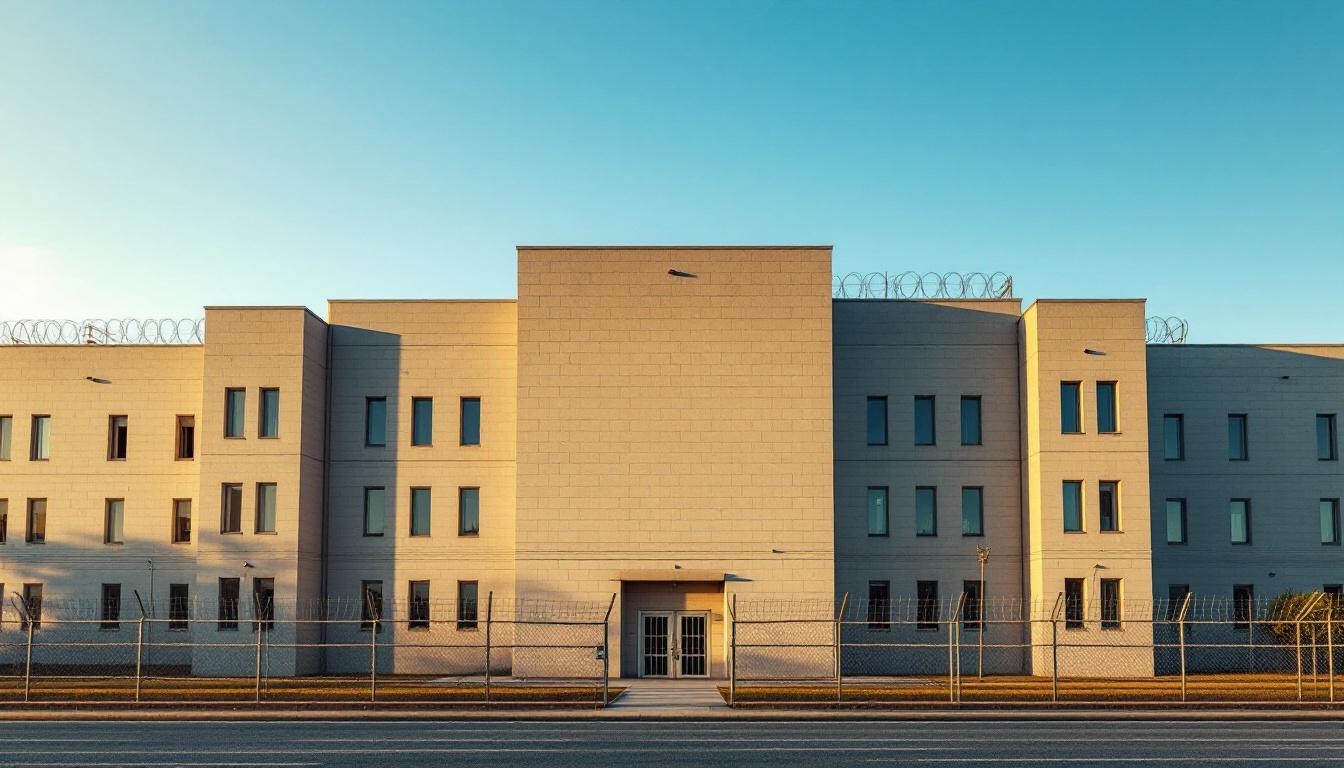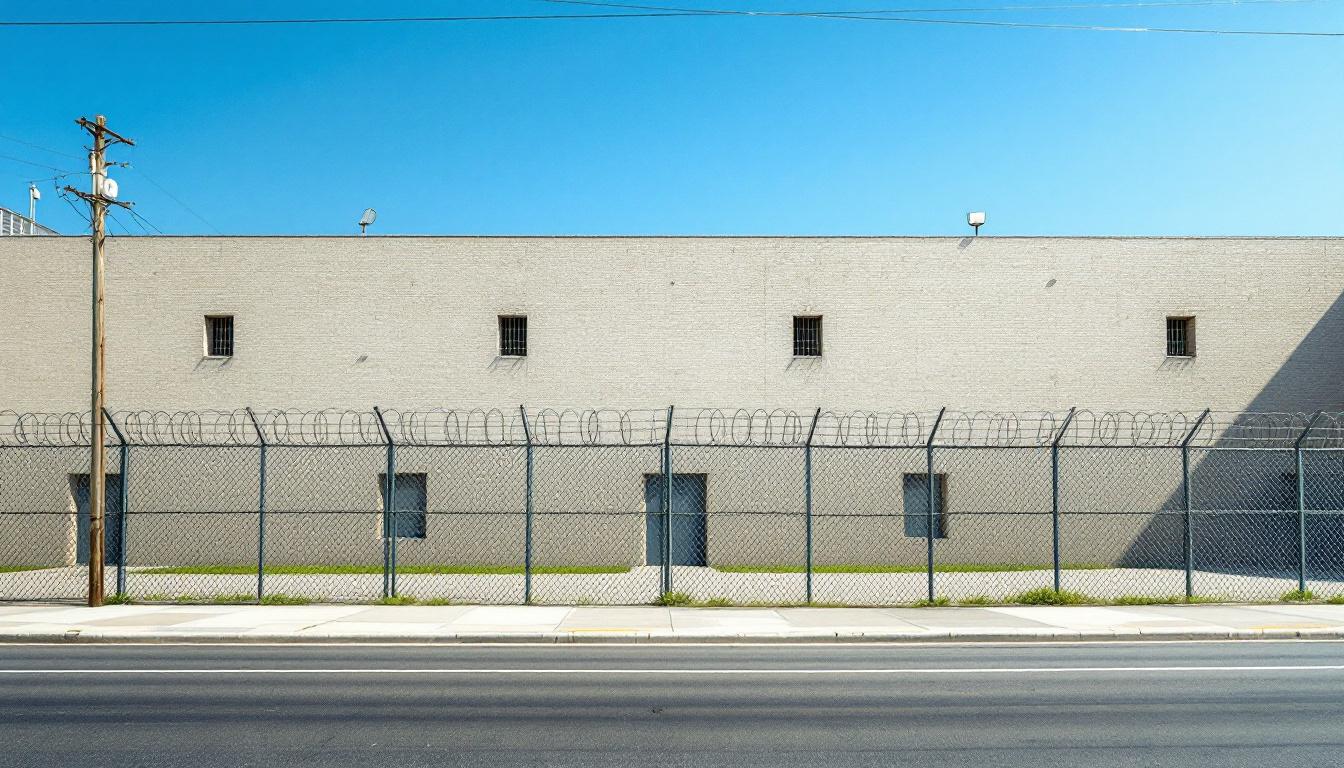
Quick Navigation
How to contact an inmate at Yakima County Department of Corrections
This comprehensive guide will walk you through how to connect with an inmate at Yakima County Department of Corrections. Follow the steps below to find an inmate and send letters and photos:
- Search for the inmate using our search tool below
- Create your account or log in to Penmate
- Write your message (up to 6,000 characters)
- Send instantly - inmates receive printed copies daily
Find an Inmate
Search for an inmate to start communicating today
Tip: You can search by first name, last name, or inmate ID number
To contact a person at Yakima County Department of Corrections start by searching for the person on the official facility website. Perform a search by following these steps:
- Step 1: Enter their first name and last name into the search form and click "Search"
- Step 2: Locate their inmate record
- Step 3: Write down their Inmate ID and any housing information provided
Important! Be sure to enter the person's full name. Nicknames should not be used.
How to Send Messages to Inmates

You can use your phone or computer to send emails, letters, and photos to an inmate. Messages are sent electronically to inmate tablets or kiosks at the facility. If you would like to send a message, start by searching for an inmate at Yakima County Department of Corrections.
Sending Photos and Postcards

A great way to send love and support to a loved one at Yakima County Department of Corrections is to send photos and postcards. It only takes a few minutes to send photos from your phone and it makes a huge difference. You can also mail postcards with words of support and inspiration, or design your own postcard for special moments like birthdays and holidays.
Important! Be sure not to send any explicit photos or they may not be approved by the facility. You can also use a photo printing app like Penmate to make sure your photos are printed at the correct size (4x6 or 3x5) and are mailed according to the rules and regulations of Yakima County Department of Corrections.
Frequently asked questions about Yakima County Department of Corrections
-
How long does it take to deliver a message?
If you're sending an email message your letter is usually delivered within 24-48 hours. For messages sent via mail you should expect delivery within 3-7 days. All messages will need be approved by Yakima County Department of Corrections.
-
How much does it cost to send a message to Yakima County Department of Corrections?
You can send a message free using your phone or mail a message via USPS for the price of a $0.60 stamp and envelope. You can also purchase credits or e-stamps from services starting at $1.99.
-
What services can I use to contact an inmate at Yakima County Department of Corrections?
Penmate
You can use Penmate to send letters and photos to an inmate from your phone. It's an easy way to stay in touch during your loved one's incarceration. Use the inmate locator to find an inmate's location and contact information, then you can send messages within a few minutes.
Securus messaging
Securus may be another option for communicating with an inmate at Yakima County Department of Corrections. You can create a friends and family account and purchase credits to send messages. All messages will be reviewed and must be approved by the facility.
JPay
Some county jails and state prisons may support sending messages with JPay. You must register an account with the system, find your loved one, and purchase stamps to send messages. For some locations you can also attach photos.
Smart Jail Mail
You may also check if Smart Jail Mail is available at Yakima County Department of Corrections. Smart Jail Mail is operated by Smart Communications and has contracted with some state and county jails. After purchasing credits, your messages and photos are sent to the facility, printed out, and then handed out to your loved one.
-
What is the mailing address of Yakima County Department of Corrections?
Mailing address:
Yakima County Department of Corrections
111 N Front St
Yakima, WA 98901
Phone: (509) 574-1700Business hours:
- Monday: 8:00 AM – 5:00 PM
- Tuesday: 8:00 AM – 5:00 PM
- Wednesday: 8:00 AM – 5:00 PM
- Thursday: 8:00 AM – 5:00 PM
- Friday: 8:00 AM – 5:00 PM
- Saturday: Closed
- Sunday: Closed
-
What are the visiting hours at Yakima County Department of Corrections?
Visiting hours at Yakima County Department of Corrections vary by housing unit and security level. Generally, visits are scheduled on weekends and holidays, with some facilities offering weekday visits. Contact the facility directly at (509) 574-1700 or check their website for the current visiting schedule. Visits typically last 30-60 minutes and must be scheduled in advance.
-
What items are prohibited when sending mail to Yakima County Department of Corrections?
Prohibited items typically include: cash, personal checks, stamps, stickers, glitter, glue, tape, staples, paperclips, polaroid photos, musical or blank greeting cards, hardcover books, magazines with staples, and any items containing metal or electronics. Only send letters on plain white paper with blue or black ink. Photos must be printed on regular photo paper (no Polaroids). Always check with Yakima County Department of Corrections for their specific mail policies.
-
How do I send money to an inmate at Yakima County Department of Corrections?
You can send money to an inmate at Yakima County Department of Corrections through several methods: 1) Online using JPay, Access Corrections, or the facility's approved vendor, 2) Money orders mailed directly to the facility with the inmate's name and ID number, 3) Kiosks located in the facility lobby, or 4) Over the phone using a credit or debit card. Fees vary by method, typically ranging from $2.95 to $11.95 per transaction.
-
Can I schedule a video visit with an inmate at Yakima County Department of Corrections?
Many facilities now offer video visitation as an alternative to in-person visits. At Yakima County Department of Corrections, video visits may be available through services like Penmate, Securus Video Connect, GTL, or ICSolutions. Video visits typically cost $10-20 for 20-30 minutes and must be scheduled in advance. You'll need a computer or smartphone with a camera and reliable internet connection. Contact the facility for their specific video visitation policies and approved vendors.
-
What identification do I need to visit an inmate at Yakima County Department of Corrections?
All visitors must present valid government-issued photo identification such as a driver's license, state ID, passport, or military ID. Minors must be accompanied by a parent or legal guardian who can provide the minor's birth certificate. Some facilities require visitors to be on the inmate's approved visitation list, which may require a background check. Contact Yakima County Department of Corrections for specific ID requirements and visitor approval procedures.
-
How can I find out an inmate's release date?
To find an inmate's release date at Yakima County Department of Corrections, you can: 1) Use the online inmate search tool if available, 2) Call the facility's records department, 3) Contact the inmate's case manager or counselor, or 4) Have the inmate provide this information during a call or visit. For privacy reasons, some facilities only release this information to immediate family members.
Facility Overview
Contact Information
Yakima County Department of Corrections111 N Front St
Yakima, WA 98901
Phone: (509) 574-1700
Official Website

About Yakima County Department of Corrections
Serving the correctional needs of Washington State's central valley region, the Yakima County DOC, WA operates as an integral component within the broader Pacific Northwest corrections framework. Positioned strategically in Yakima, this WA correctional facility addresses the complex challenges of maintaining secure custody while fostering pathways toward successful community reintegration for individuals under its supervision.
The facility typically maintains comprehensive security protocols designed to protect both staff and those incarcerated services participants, while simultaneously offering structured programming opportunities that may include educational advancement, vocational skill development, and behavioral intervention initiatives. Within Washington's regional corrections network, this correctional facility generally coordinates with state and local agencies to ensure continuity of care and supervision as individuals transition between different levels of custody and community-based alternatives. The institution's operational framework often emphasizes maintaining family connections and community ties, recognizing these relationships as fundamental elements in successful rehabilitation outcomes.
Located in the heart of the Yakima Valley, the facility serves not only as a secure detention center but also as a bridge connecting individuals to the resources and support systems necessary for meaningful reintegration. Staff members typically work to address the diverse needs of the population through case management services, mental health support, and substance abuse programming, while maintaining the structured environment essential for institutional safety and security within the broader Yakima community context.
Programs & Services
Personal growth becomes possible when those incarcerated have access to meaningful opportunities that address their individual needs and future goals. Yakima County DOC typically provides a structured environment where participants can engage in various offerings designed to support their development during incarceration. The facility often emphasizes building practical skills and addressing personal challenges through organized programming that may help prepare individuals for successful community reintegration.
Educational services form a cornerstone of the facility's approach to rehabilitation. Those incarcerated may access basic literacy programs, GED preparation courses, and continuing education opportunities that allow them to advance their academic credentials. Furthermore, vocational programs often include training in trades and practical skills that can translate directly to employment opportunities upon release. Work programs within the facility typically provide hands-on experience while contributing to daily operations and maintenance needs.
Support services address the broader wellness needs of those incarcerated through comprehensive programming. Stress management offerings may help participants develop healthy coping strategies for dealing with the challenges of incarceration and preparation for release. Furthermore, wellness programs often include physical fitness activities, nutritional education, and mental health support services. These therapeutic offerings typically focus on building personal responsibility, improving communication skills, and addressing underlying issues that may have contributed to criminal behavior, all within a secure and structured environment that prioritizes safety for both participants and staff.
Daily Life & Visitation
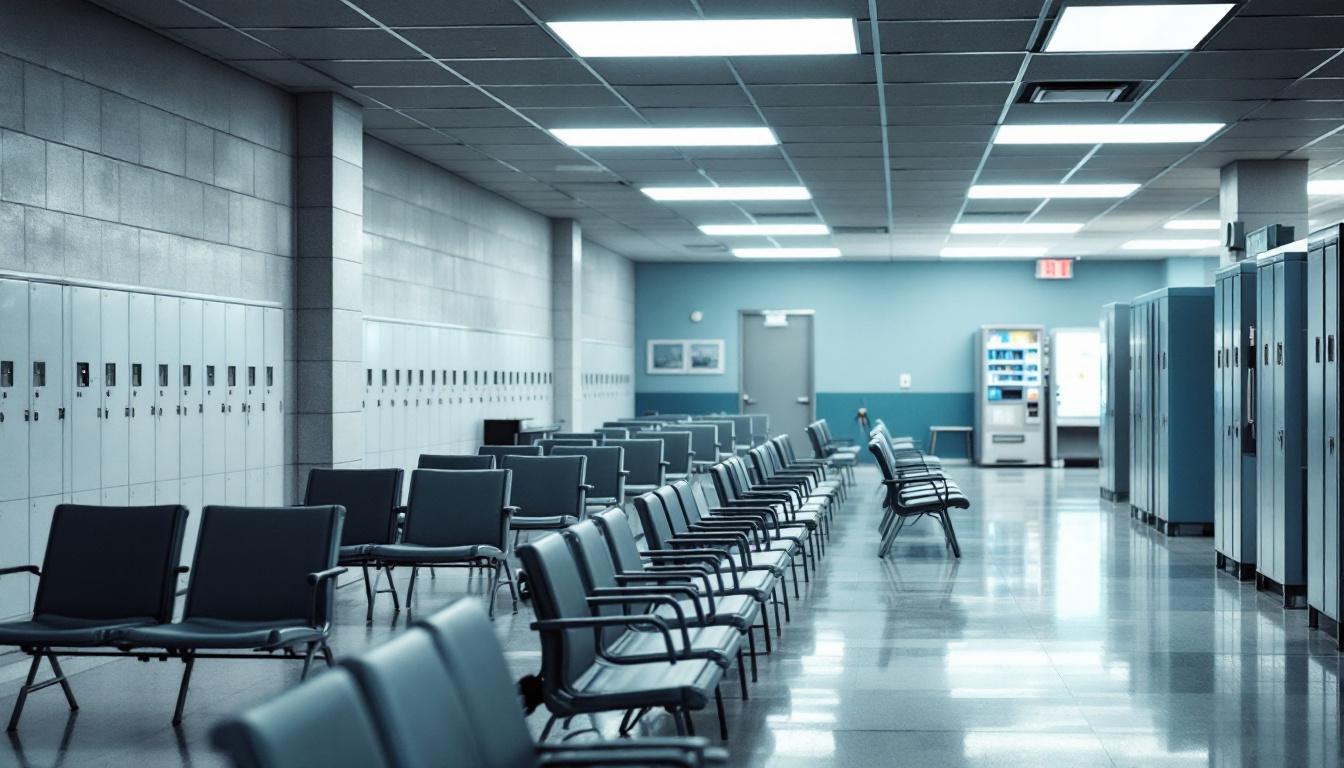
Family connections and community bonds remain central to the experience of those incarcerated at the Yakima County facility. Those housed here now follow structured daily routines that regularly include opportunities for social interaction and maintaining relationships with loved ones. The facility typically operates on a schedule that balances security requirements with programming needs, allowing residents to participate in various activities while staying connected to their support networks.
Living arrangements generally consist of shared housing units where those incarcerated develop relationships with fellow residents. The facility furnishes dining areas where meals are served at designated times, creating natural opportunities for community building and social interaction. Furthermore, recreational activities may include access to outdoor exercise areas, television rooms, and spaces for group activities that help maintain social connections within the facility environment.
Programming schedules typically include work assignments that allow those incarcerated to contribute to facility operations while developing skills and maintaining purpose. Although security protocols govern all activities, visitation policies generally permit regular contact with family members and approved visitors. Communication options may include telephone access and correspondence, helping residents maintain important relationships with their support systems outside the facility. The commissary system usually allows those incarcerated to purchase personal items and snacks, often with financial support from family members who remain actively involved in their care.
Ready to Connect?
Start communicating with your loved one today
Search for an Inmate
